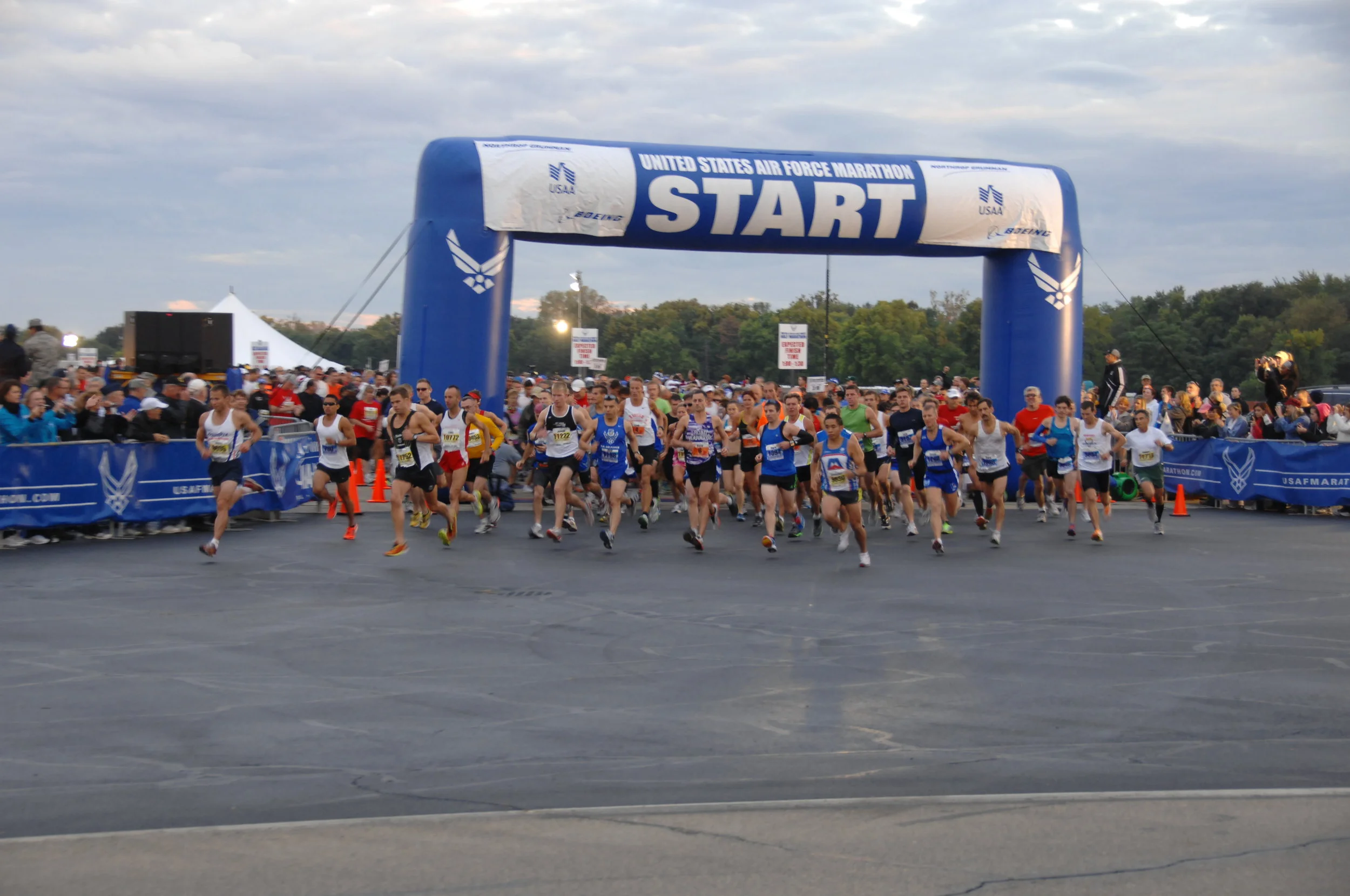People with goals succeed
because they know
where they are going.
An often overlooked part of reaching life goals is setting the right goals. This does not mean setting easier goals but setting smarter goals. This is true of running goals just as it is with other life goals so here are the five features that make a good solid running goal. Then I will explain why races make the great running goals, and how to pick a good goal race.
1. Good running goals are specific
When running goals are vague the path to achieving those goals is equally hazy. If your goal is to be a "better runner," that is great, but what that means needs to be better defined. Do you want to improve your sprint speed? Run a marathon? Improve Stamina for another sport? These things could all be considered becoming a "better runner" but the path to those goals is vastly different.
Vague Goal: I want to be a better runner
Specific Goal: I am going to run a marathon
More Specific Goal: I am going to run the Boston Marathon
Even More Specific Goal: I am going to run the Boston Marathon in 2019.
Very Specific Goal: I am going to run the Boston Marathon in 2019 in less than 3 hours
A well-defined goal can have a well-defined path. A vague goal only has a vague direction, so make sure your running goals are specific as possible.
2. Good Running goals are measurable
How do you know if you have reached your goal if you can't quantify your goal? If you have not run for months and you set a goal to "run more" then you go for a run the next day and then stop running again, did you achieve your goal? Well, yes...technically. Is that really what you meant? Who knows, "more" is not measurable.
As runners, we are blessed with multiple easily quantifiable measurements. The most obvious two are time and distance. If you set a time goal for a certain distance, the outcome is very measurable. If you set a goal to run a 40 min 10k, and your next 10k you run in 38:45. Did you reach your goal? Obviously, and undisputably YES.
3. Good running goals are challenging yet attainable.
So you have just set a goal that is specific and measurable. You have just decided that your running goal is to run the New York Marathon this year in under 2 hours. Congratulations, you have set a very challenging goal indeed, but unless you are one of a very select few athletes this goal is setting you up to fail. On the opposite end of this spectrum is choosing a goal that is too easy. A goal that doesn't challenge you does not help you grow and improve. So when setting your goals be honest with yourself about what you are actually caple of now, as well as how far you can improve in the time period that you set.
4. Good running goals must be relevant.
This is arguably the most important factor in setting good running goals. This is the "why" in your running goal. If a goal is not relevant to you it is unlikely that you will stay motivated to accomplish it. If you set a goal to run a marathon but you really hate running and the more you do it the less fun you have, then what do you really get from accomplishing your goal, and what motivation do you have to get up every morning to go running. However, if you have run a few 10ks and now you want to challenge yourself because you love a good challenge, then you are much more likely to pursue your goal...even when it gets hard... and it will get hard.
5. Good Running Goals are timebound
Making your goals timebound is similar to making your goals specific but in relation to time. To set a goal to run the New York Marathon is a great goal, but when? This year? Next Year? 20 years from now? When you set a goal make sure that it has an expiration date. For races, don't just set a goal to participate. If it is your goal to participate, purchase your registration and put it on your calendar. Now your goal is real.
Why race goals make the best running goals.
When I am coaching athletes I always insist that their goals be race goals. Race goals fulfill all the criteria of what makes a good race goal.
There are three parts to a race goal:
- What race are you going to run?
- When are you racing it?
- How fast are you going to run it?
Vague race goal: I am going to run the San Francisco Marathon.
Good race goal: I am going to run the San Francisco Marathon this year in under 4 hours.
If you don't know what a good time goal is when you register and put it on your calendar, don't worry, you can further refine your goal as your training progresses and by the time you make it to your marathon you should have a pretty good idea of a time goal that is challenging yet achievable.
Primary and Secondary Goals
When setting running goals it is best to define your Primary Goal Race. This should be a lofty goal. To achieve this goal, you will need to perform at your peak. A big goal like this would be impossible if it were not broken down into a series of smaller goals which must then be broken into yet smaller goals. For instance, if you plan to run a marathon you will likely run a few shorter races in preparation - each with their own time and distance goals. Let's not forget that to even get to those races you will take many training runs each of which should have its own challenge to be met. These secondary and tertiary goals are also important but should be used as stepping stones toward your Primary Race Goal and not distract from it.
How do I set a race goal?
- Do research on the internet to find races available near you, or even better, go to your local running store or group and ask.
- Plan your Primary race goal 3-5 months out to allow ample time for preparation.
- Register and put it on the calendar (I'm serious here...this suddenly makes your goal real.)


